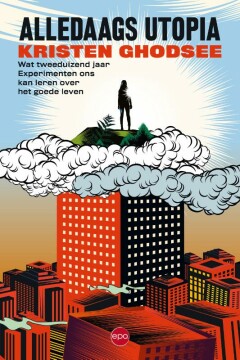What do you think?
Rate this book


400 pages, Paperback
First published May 18, 2023
Ik hoop dat geïnteresseerde lezers geïnspireerd worden om dez ideeën verder te verkennen door de vele werken te raadplegen die in de eindnoten staan vermeld. En omdat ik dit boek zo internationaal mogelijk wilde maken, heb ik ervoor gekozen niet te overdrijven met voorbeelden uit de Verenigde Staten [Joechei] - zo wil ik niet te lang stilstaan bij de 'hippiecommunes' van de jaren zestig die elders al uitvoerig zijn besproken. In plaats daarvan belicht ik verschillende andere experimenten die relatief minder aandacht hebben gekregen.en dan op blz. 12:
Maar samengenomen als een panorama van verschillende ideeën, in combinatie met enkele beschouwingen over de gemeenschappen die deze visies aanpassen aan de echte wereld van vandaag, denk ik dat ze ons kunnen helpen om na te denken over andere organisatievormen van ons leven en om diverse hedendaagse problemen aan te pakken waarmee we in de eenentwintigste eeuw worden geconfronteerd.Duss.... daar gaan we!
Aan evolutiebioloog Stephen Jay Gould werd eens gevraagd hoe hij de uitzonderlijke intelligentie van Albert Einstein kon verklaren. Hij antwoordde: 'Op een of andere manier raken het gewicht en de kronkelingen van Einsteins hersenen mij minder dan de bijna zekerheid dat er mensen met hetzelfde talent hebben geleefd die gestorven zijn in katoenvelden en sweatshops.'Maar de toevoeging van Ghodsee mag er ook zijn: En in keukens en crèches [...] omdat men al duizenden jaren lang de intelligentie van meisjes systematisch over het hoofd ziet.